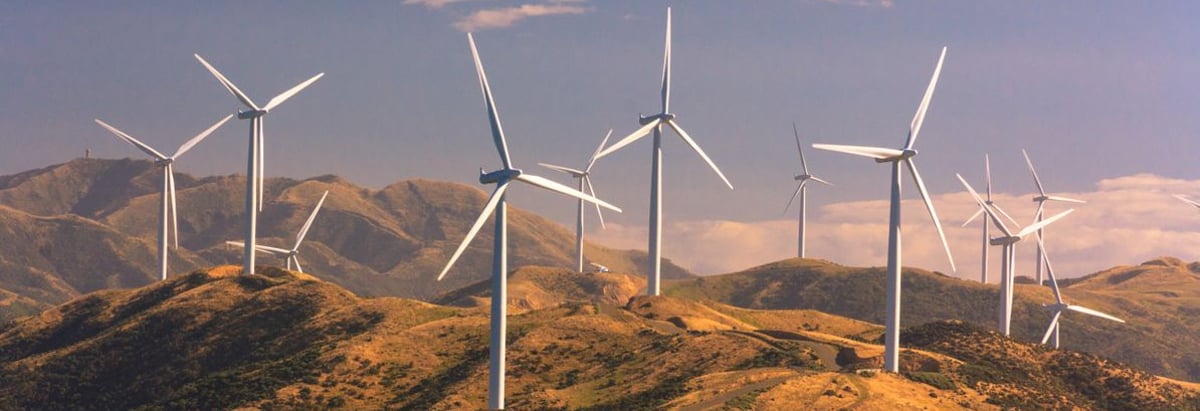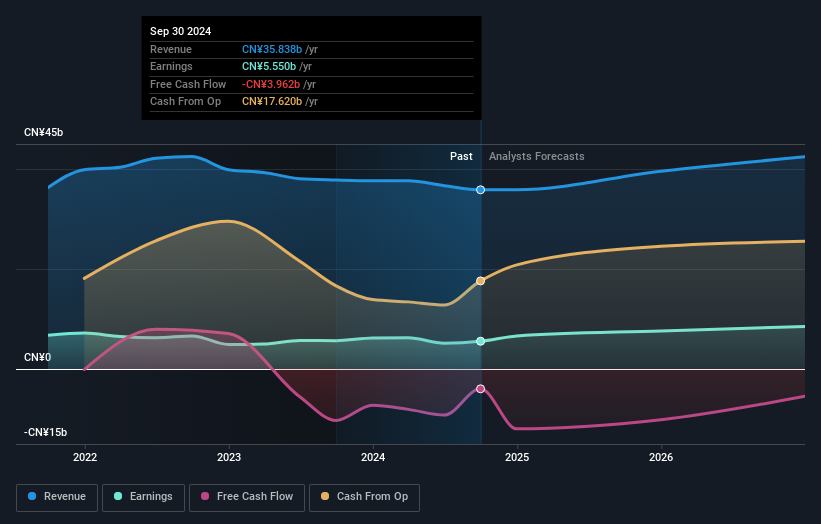- Hong Kong
- /
- Renewable Energy
- /
- SEHK:916
Private companies who have a significant stake must be disappointed along with institutions after China Longyuan Power Group Corporation Limited's (HKG:916) market cap dropped by HK$2.7b

Key Insights
- China Longyuan Power Group's significant private companies ownership suggests that the key decisions are influenced by shareholders from the larger public
- 59% of the company is held by a single shareholder (CHN ENERGY Investment Group Co.,Ltd)
- Institutions own 25% of China Longyuan Power Group
Every investor in China Longyuan Power Group Corporation Limited (HKG:916) should be aware of the most powerful shareholder groups. And the group that holds the biggest piece of the pie are private companies with 59% ownership. That is, the group stands to benefit the most if the stock rises (or lose the most if there is a downturn).
While the holdings of private companies took a hit after last week’s 4.6% price drop, institutions with their 25% holdings also suffered.
Let's take a closer look to see what the different types of shareholders can tell us about China Longyuan Power Group.
Check out our latest analysis for China Longyuan Power Group

What Does The Institutional Ownership Tell Us About China Longyuan Power Group?
Institutions typically measure themselves against a benchmark when reporting to their own investors, so they often become more enthusiastic about a stock once it's included in a major index. We would expect most companies to have some institutions on the register, especially if they are growing.
As you can see, institutional investors have a fair amount of stake in China Longyuan Power Group. This suggests some credibility amongst professional investors. But we can't rely on that fact alone since institutions make bad investments sometimes, just like everyone does. When multiple institutions own a stock, there's always a risk that they are in a 'crowded trade'. When such a trade goes wrong, multiple parties may compete to sell stock fast. This risk is higher in a company without a history of growth. You can see China Longyuan Power Group's historic earnings and revenue below, but keep in mind there's always more to the story.

Hedge funds don't have many shares in China Longyuan Power Group. CHN ENERGY Investment Group Co.,Ltd is currently the company's largest shareholder with 59% of shares outstanding. This implies that they have majority interest control of the future of the company. With 5.6% and 3.6% of the shares outstanding respectively, Rui Life Insurance Co., LTD., Asset management arm and GIC Private Limited are the second and third largest shareholders.
Researching institutional ownership is a good way to gauge and filter a stock's expected performance. The same can be achieved by studying analyst sentiments. There are plenty of analysts covering the stock, so it might be worth seeing what they are forecasting, too.
Insider Ownership Of China Longyuan Power Group
The definition of company insiders can be subjective and does vary between jurisdictions. Our data reflects individual insiders, capturing board members at the very least. Company management run the business, but the CEO will answer to the board, even if he or she is a member of it.
Insider ownership is positive when it signals leadership are thinking like the true owners of the company. However, high insider ownership can also give immense power to a small group within the company. This can be negative in some circumstances.
Our data cannot confirm that board members are holding shares personally. It is unusual not to have at least some personal holdings by board members, so our data might be flawed. A good next step would be to take a look at this free summary of insider buying and selling.
General Public Ownership
The general public, who are usually individual investors, hold a 16% stake in China Longyuan Power Group. While this group can't necessarily call the shots, it can certainly have a real influence on how the company is run.
Private Company Ownership
We can see that Private Companies own 59%, of the shares on issue. It might be worth looking deeper into this. If related parties, such as insiders, have an interest in one of these private companies, that should be disclosed in the annual report. Private companies may also have a strategic interest in the company.
Next Steps:
I find it very interesting to look at who exactly owns a company. But to truly gain insight, we need to consider other information, too. For instance, we've identified 3 warning signs for China Longyuan Power Group (1 is potentially serious) that you should be aware of.
Ultimately the future is most important. You can access this free report on analyst forecasts for the company.
NB: Figures in this article are calculated using data from the last twelve months, which refer to the 12-month period ending on the last date of the month the financial statement is dated. This may not be consistent with full year annual report figures.
New: AI Stock Screener & Alerts
Our new AI Stock Screener scans the market every day to uncover opportunities.
• Dividend Powerhouses (3%+ Yield)
• Undervalued Small Caps with Insider Buying
• High growth Tech and AI Companies
Or build your own from over 50 metrics.
Have feedback on this article? Concerned about the content? Get in touch with us directly. Alternatively, email editorial-team (at) simplywallst.com.
This article by Simply Wall St is general in nature. We provide commentary based on historical data and analyst forecasts only using an unbiased methodology and our articles are not intended to be financial advice. It does not constitute a recommendation to buy or sell any stock, and does not take account of your objectives, or your financial situation. We aim to bring you long-term focused analysis driven by fundamental data. Note that our analysis may not factor in the latest price-sensitive company announcements or qualitative material. Simply Wall St has no position in any stocks mentioned.
About SEHK:916
China Longyuan Power Group
Generates and sells wind, coal, and photovoltaic (PV) power in the Chinese Mainland, Canada, South Africa, and Ukraine.
Good value with moderate growth potential.
Similar Companies
Market Insights
Community Narratives


